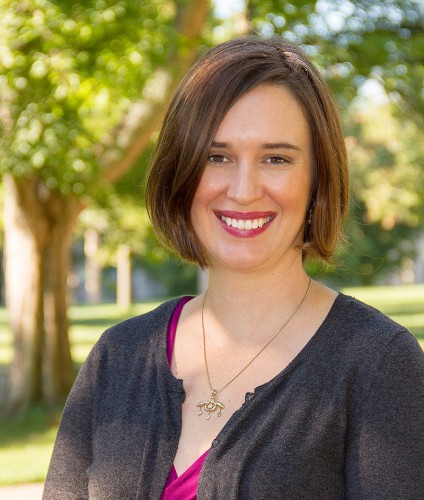
Claire Novotny is an assistant professor of anthropology at Kenyon. Her research interests include the archaeology of ancient Maya households and rural communities, the role of identity in social and political affiliation and public archaeology. While studying for her MA in applied anthropology at the University of South Florida, Claire became interested in how archaeological knowledge is created and used in contemporary societies, specifically among Indigenous communities. For her dissertation research at UNC-Chapel Hill, she worked with Aguacate, a Q'eqchi' Maya village located in southern Belize, to design and implement a community archaeology project that investigated ancient Maya archaeological sites on community land. The project was a collaborative effort that sought the participation of local people in the creation of knowledge about their history and heritage.
Claire comes to Kenyon from InHerit: Passed to Present, a cultural heritage nonprofit housed in the Research Laboratories of Archaeology at UNC-Chapel Hill. As program director for InHerit, she planned and implemented educational programs about archaeology and heritage for local communities in Yucatán, Mexico, and Petén, Guatemala. Claire initiated the ongoing Toledo Heritage Stewardship Program in southern Belize, in collaboration with the Maya Leaders' Alliance (MLA), as a way to empower local stewards to map heritage sites in Mayan communities.
Areas of Expertise
Mesoamerican archaeology, community archaeology, archaeology of households and identity, applied anthropology.
Education
— Bachelor of Arts from Whitman College
— Doctor of Philosophy from University of North Carolina
— Master of Arts from University of South Florida